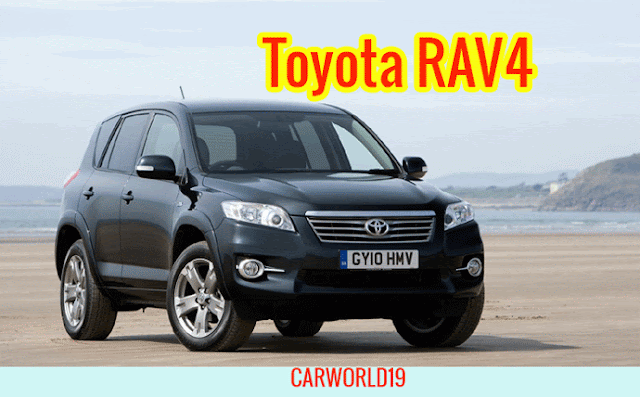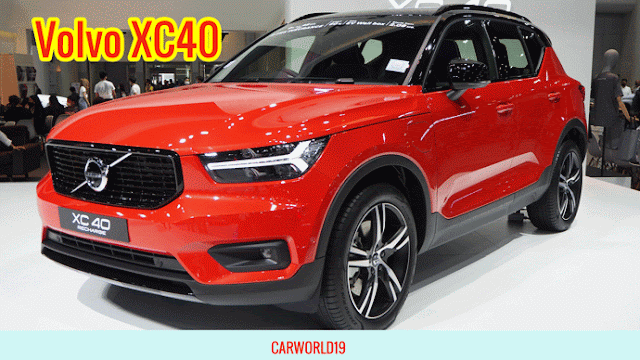In Australia, hybrid and electric vehicles are gaining popularity. This is due to government pressure and environmental concerns.
 |
| Australia's 7 Best Hybrid Cars, 2022 |
However, range anxiety is still a problem with electric vehicles. This indicates that drivers are not yet ready to abandon the internal combustion engine. The best answer to the problem is hybrid technology.
The good news is that hybrid car development has been accelerated by manufacturers. When it comes to purchasing the newest hybrid technology, today's automobile consumers are spoiled for options.
So, in this article, we'll look at the seven finest hybrid automobiles on the market in 2022.
1 Hyundai Ioniq Hybrid, No
- $41,390 + on-road expenses
- 3.5L/100 km fuel economy
- CO2 emissions: 102 g/km
2. Lexus NX450H (Lexus NX450H)
- Price: $90,000 plus on-road charges (estimated).
- 1. liters per 100 kilometers
- CO2 emissions: 26 g/km
The Toyota RAV4 underpins the Lexus NX450H, which is a good thing considering the RAV4 is one of the greatest hybrid platforms available. As a result, the 2.5-liter engine produces 302 horsepower and is coupled to a rear-mounted motor. For a car of its size, this delivers superb performance and fuel efficiency.
The NX450's design continues where the NX350 left off. The nose has a sleek, futuristic appearance to it, giving it an assertive road presence. It features everything you'd expect from a Lexus on the inside. The dashboard is well-designed, and the seats are supportive and pleasant.
Pros
- It's enjoyable to drive.
- Completely outfitted
- It appears to be excellent.
Cons
- It is costly.
- Luggage space is limited
- Slow in comparison to competitors
3. Toyota RAV4
- Price: $45,000 + destination charges
- 4.8L/100 km fuel economy
- CO2 emissions: 109 g/km
The Toyota RAV4 is the most popular car in Australia. It's not difficult to understand why. The automobile is well-equipped, looks fantastic, and drives like a car half its size. It also offers enough space inside for the entire family.
The hybrid variant is powered by the same 2.5-liter engine as the Lexus NX450. This is linked to a 45-kilowatt electric motor that exclusively drives the back wheels. On the road, it performs admirably, if not spectacularly. However, with a fuel efficiency of only 4.8L/100 km, you won't be concerned.
Pros
- Exceptional fuel economy
- Exciting to drive
- Cost-effectiveness
Cons
- The inside is outdated.
- Not as quick as other competitors
- There is a six-month waitlist.
4 Subaru Forester Hybrid, No
- $44,000 + on-road expenses
- 6.7L/100 km fuel economy
- CO2 emissions: 109 g/km
The Subaru Forester competes directly with the Toyota RAV4. A four-cylinder 2.5-liter engine produces power, which is supplemented by a 12.3kW electric motor. This gives you good all-around performance while also saving you money on gas. However, it falls short of the RAV4's performance and range.
Off-road performance is where the Forester shines. The car's 220 mm ground clearance allows it to easily navigate difficult terrain. In slick conditions, the X-Mode transmission changes the gears and throttle continuously.
It's no surprise that the Forrester is the preferred vehicle for those who live off the main path.
Pros
- Spacious interior
- It's simple to drive
- Excellent off-road capability
Cons
- Styling that isn't up to par
- Some low-cost plastics
- overly vigilant Safety systems
5. Toyota Corolla Hybrid
- Price: ($30,795 + on-road expenses)
- 3.5L/100 km fuel economy
- CO2 emissions: 109 g/km
Toyota produces the Corolla Hybrid for those who don't want or need an SUV. The new Corolla, which will be available in 2020, is a beautiful family runabout that is as easy on the eyes as it is on the money.
The starting price is $30,795. For that, you get a well-equipped five-door hatchback with low fuel consumption.
The Corolla is powered by a 2.0-liter petrol engine, which is a more powerful version of the Prius' 1.8-liter unit. This gives you a quick response on the road, but it won't win you any traffic drag races. Not that you'd want to, after all, this is a family car. And it's a task that this nifty runabout excels at.
Pros
- As a standard, well-equipped
- Reasonable price
- Excellent safety characteristics
Cons
- Minimalist footwear
- In the rear, there is a lack of headroom.
- Not as strong as some of its competitors
6. Volvo XC40
- Price: (with on-road costs): $69,760
- 2.2L/100 km fuel economy
- CO2 emissions: 158 g/km
The Volvo XC40 is the company's smallest SUV. It's meant to be compact enough to travel about town while yet accommodating a family of four. Volvo's simple interior architecture makes the cabin seem light and airy.
With plenty of storage containers and a big boot, it's also functional.
A 1.5-liter three-cylinder petrol engine plus a 60 kWh electric motor power the little Volvo. This results in exceptional performance without sacrificing fuel efficiency. According to Volvo, the vehicle's combined fuel consumption is 2.2 liters per 100 kilometers (ADR). This is a remarkable achievement for a vehicle of this size, and it will allow you to enjoy incredibly cheap operating expenses.
Pros
- It is pleasant to drive.
- Plenty of room for the entire family
- Low-cost operation
Cons
- Purchasing costs a lot of money.
- Insufficient battery capacity
- The infotainment system is in desperate need of an overhaul.
7. Toyota Yaris Hybrid
- Price: $29,020 plus on-road charges for the Toyota Yaris Hybrid.
- 2.2L/100 km fuel economy
- CO2 emissions: 84 g/km
From premium SUVs to modest family runabouts, we attempted to include something for everyone on this list. Our pick for the best super mini is the new Toyota Yaris. This stunning vehicle performs as well as it looks. With a 1.5-liter three-cylinder petrol engine and a 9-kilowatt-hour electric motor.
The only flaw in this little automobile is its exorbitant price tag. It is more costly than comparable super mini hybrids at $29,020 including on-road fees. While it is well-equipped, it is tough to argue that it represents good value.
Nonetheless, it is still the greatest super mini to drive, as well as the best-looking.
Pros
- A thriving urban economy
- It's enjoyable to drive
- Completely outfitted
Cons
- Expensive for such a small vehicle.
- Steady ride.
- Choose a boot that is on the small side.
Every budget has a hybrid option
Hybrid automobiles used to be more costly than their gasoline counterparts. Prices are always decreasing. While they are still more expensive to purchase, the difference is more than compensated for by decreased operating expenses.
Hybrids are now available in a variety of price ranges. It's never been a better time to trade in your old gasoline or diesel vehicle.


